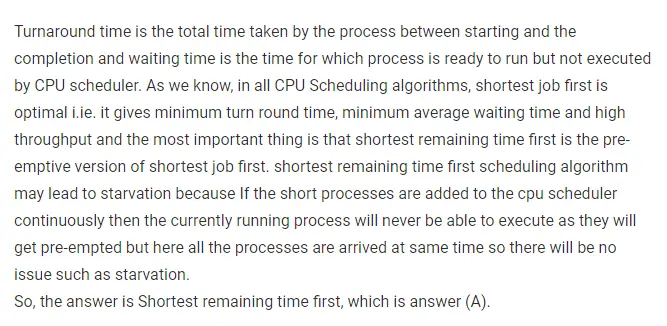Q. 30 Consider an arbitrary set of CPU-bound processes with unequal CPU burst lengths
submitted at the same time to a computer system. Which one of the following process scheduling algorithms would minimize the average waiting time in the ready queue?
(A) Shortest remaining time first
(B) Round-robin with time quantum less than the shortest CPU burst
(C) Uniform random
(D) Highest priority first with priority proportional to CPU burst length
Answer: (A)
Explanation:













